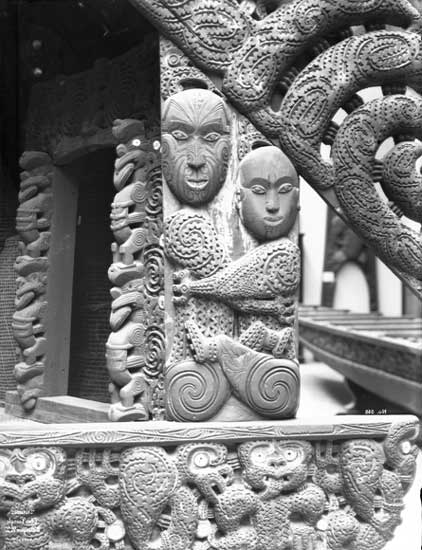What a nation chooses to remember and forget: the war for New Zealand's history
Early
in 2014 a group of school students from a small town in rural New
Zealand took a trip to some nearby historical sites. Guided by local
Māori elders, the students from Otorohanga College encountered a history
that was all but unknown to them. As Leah Bell later recalled, “It’s shocking to hear that there were massacres half an hour from where you live, not that long along.”
Ōrākau and Rangiaowhia, where the school party visited, saw two of the bloodiest confrontations of the Waikato war – a conflict between British imperial troops and the local Tainui tribes that had been fought exactly 150 years earlier (1863-64). It was the largest and most significant in a wider series of clashes that took place in New Zealand between 1845 and 1872 as Māori communities resisted colonial conquest and expansion.
For a time in the 1860s there were more British troops in New Zealand than almost anywhere else in the empire outside India. And the Waikato war was the defining conflict in New Zealand history – a battle between two competing visions of the nation’s future. British victory paved the way for settler and European hegemony, casting aside Māori aspirations for partnership and shared prosperity for at least the next century. Instead, sweeping and indiscriminate land confiscations pushed Māori tribes to the margins of colonial society, condemning generations to lives of poverty.
That history was barely acknowledged beyond the descendants of those on the receiving end of British bullets. Few students learn about it in school. Many of the sites where these conflicts took place are neglected (many are not even signposted). There were no official commemorations, no museums and few memorials.
[Read more at the Guardian webpage]
Ōrākau and Rangiaowhia, where the school party visited, saw two of the bloodiest confrontations of the Waikato war – a conflict between British imperial troops and the local Tainui tribes that had been fought exactly 150 years earlier (1863-64). It was the largest and most significant in a wider series of clashes that took place in New Zealand between 1845 and 1872 as Māori communities resisted colonial conquest and expansion.
For a time in the 1860s there were more British troops in New Zealand than almost anywhere else in the empire outside India. And the Waikato war was the defining conflict in New Zealand history – a battle between two competing visions of the nation’s future. British victory paved the way for settler and European hegemony, casting aside Māori aspirations for partnership and shared prosperity for at least the next century. Instead, sweeping and indiscriminate land confiscations pushed Māori tribes to the margins of colonial society, condemning generations to lives of poverty.
That history was barely acknowledged beyond the descendants of those on the receiving end of British bullets. Few students learn about it in school. Many of the sites where these conflicts took place are neglected (many are not even signposted). There were no official commemorations, no museums and few memorials.
[Read more at the Guardian webpage]



Comments
Post a Comment